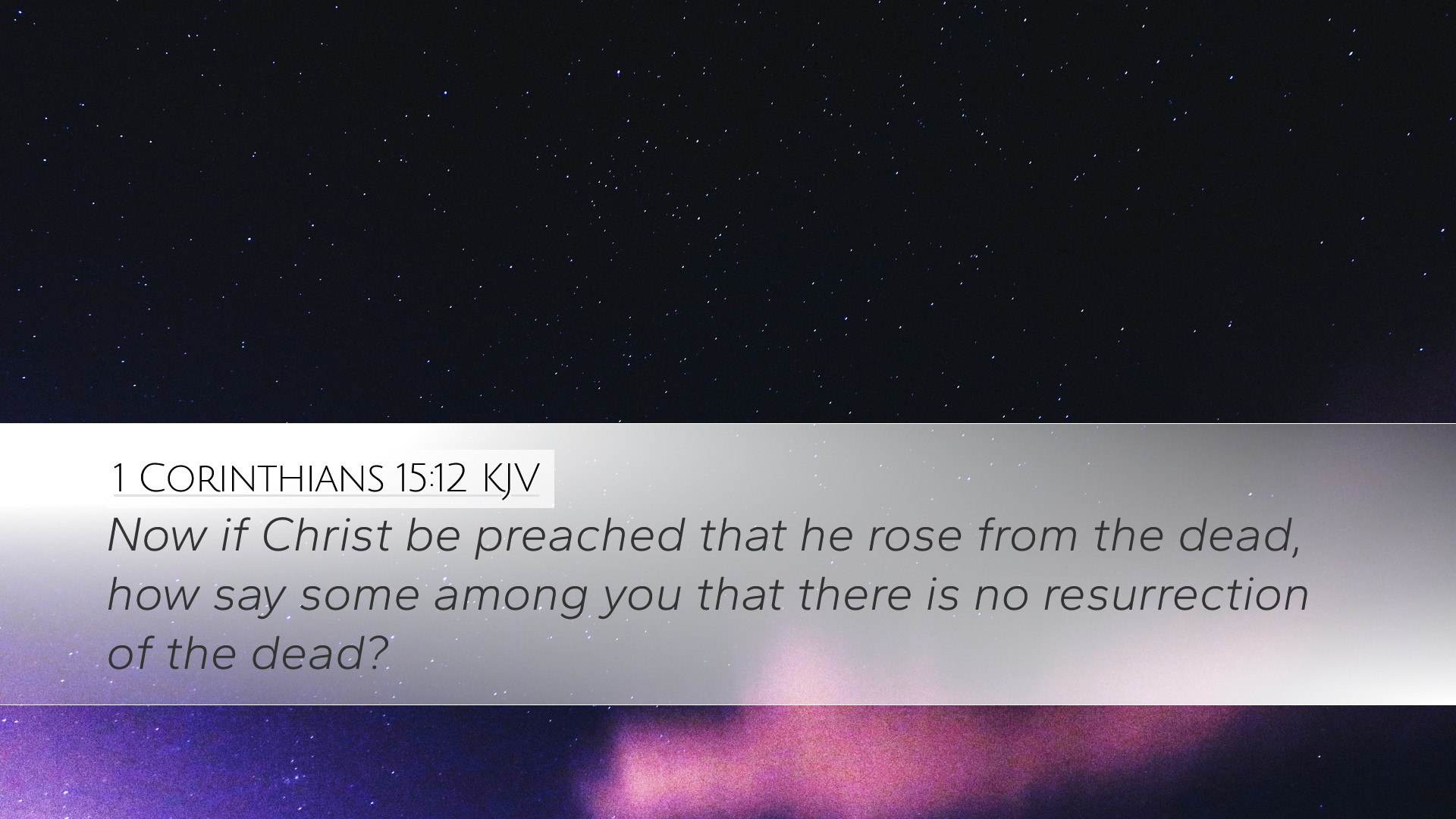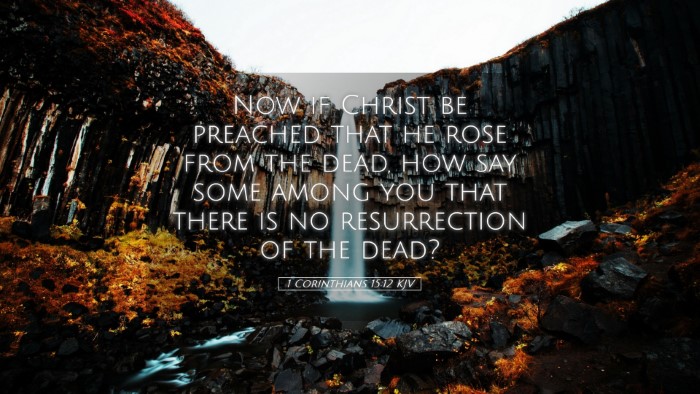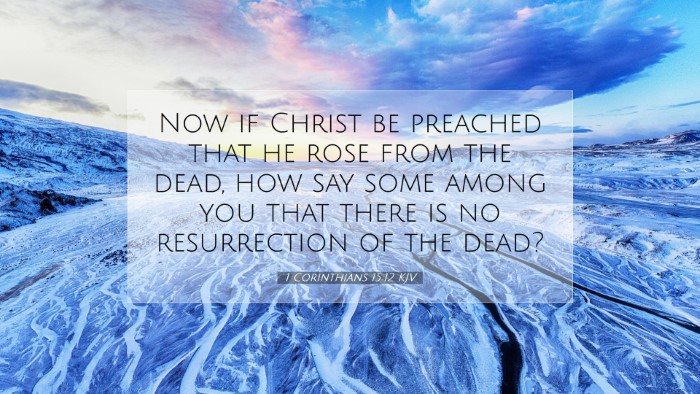Commentary on 1 Corinthians 15:12
Verse: "Now if Christ be preached that he rose from the dead, how say some among you that there is no resurrection of the dead?"
Introduction
This verse serves as a critical point in Paul's discourse regarding the resurrection of Jesus Christ, and subsequently, the resurrection of believers. The Apostle Paul addresses a troubling belief among some members of the Corinthian church who denied the resurrection of the dead. His argument rests on the fundamental truth of the Gospel—if Christ is indeed preached to have been raised, then the denial of resurrection contradicts the very foundation of Christian doctrine.
The Preaching of Christ's Resurrection
Matthew Henry emphasizes the significance of preaching Christ's resurrection as central to the Christian faith. The resurrection is not merely an event but is pivotal to the hope and assurance of salvation. Henry remarks on the importance of consistency in belief, highlighting how the same mouth that proclaims the risen Christ cannot simultaneously affirm that resurrection is a falsehood.
Paul's Method of Argumentation
Albert Barnes notes the rhetorical nature of Paul's argument. He employs a logical approach, suggesting that if Jesus rose from the dead, it necessitates a belief in the resurrection of the dead for all believers. The inconsistency in the arguments of some Corinthians prompts Paul to confront these beliefs directly. He seeks to reinforce the truth of the resurrection not only as a factual event but as the cornerstone of the Christian hope.
Theological Implications
Adam Clarke discusses the broader theological implications of denying the resurrection of the dead. To reject this doctrine is to undermine the entirety of Christ’s work. The resurrection affirms Jesus’ power over death and sin, establishing the assurance that believers will be raised as He was. Without this hope, the sentiments of faith become hollow, leading to despair.
Historical Context
In examining this chapter, it is essential to consider the historical context in which the Corinthian church existed. The nature of Greco-Roman philosophy at that time often conflicted with the teachings of Christianity. Some might have been influenced by cultural understandings of the body and spirit, leading to a rejection of physical resurrection. Thus, Paul’s insistence on the resurrection underscores the need for theological clarity amid cultural confusion.
Application for the Church Today
This verse invites pastors and theologians to reflect on the contemporary understanding of resurrection within the church. The questioning of foundational truths, much like those seen in Corinth, is relevant today. Henry’s insights encourage church leaders to preach the resurrection confidently, ensuring that congregations grasp the hope embedded in this doctrine.
- Faith Formation: Building a robust understanding of the resurrection as integral to developing a healthy faith.
- Hope in Suffering: Emphasizing that the resurrection provides hope in the face of suffering and death.
- Counteracting Cultural Beliefs: Addressing modern skepticism surrounding miracles and resurrection within society.
Conclusion
In conclusion, 1 Corinthians 15:12 acts as a clarion call to recognize the inconsistencies embodied within a denial of resurrection amidst a preached Gospel of Christ’s victory over death. By synthesizing insights from revered commentators like Henry, Barnes, and Clarke, we see a rich tapestry of theological import that can inform and strengthen the church's proclamation of the resurrection. It is crucial for both individual believers and the corporate body of Christ to hold fast to this foundational truth, fostering an unwavering hope in the promise of eternal life.


